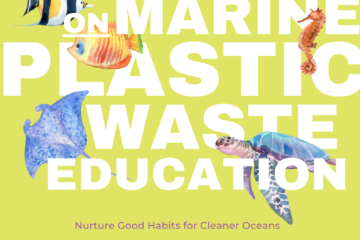On 1 March 2023, the Second ASEAN-Japan Symposium on Marine Plastic Waste Education took place online with the participation of over 1500 educators, students, and representatives of educational and environmental organizations in 21 countries, including ASEAN member states and Japan.
Speaking at the Symposium, H.E. Ekkaphab Phanthavong, Deputy Secretary General of the ASEAN Socio-cultural Community, emphasized ASEAN’s commitment to addressing the marine plastic waste issue in alignment with the ASEAN Regional Action Plan for Combating Marine Debris in the ASEAN Member States (2021-2025) Component III: Public Awareness, Education and Outreach. H.E. Phanthavong also expressed appreciation to the Government of Japan for its support for ASEAN and commended ASEAN-Japan Centre’s initiatives to bring together youth from ASEAN Member States and Japan to work on the same cause.
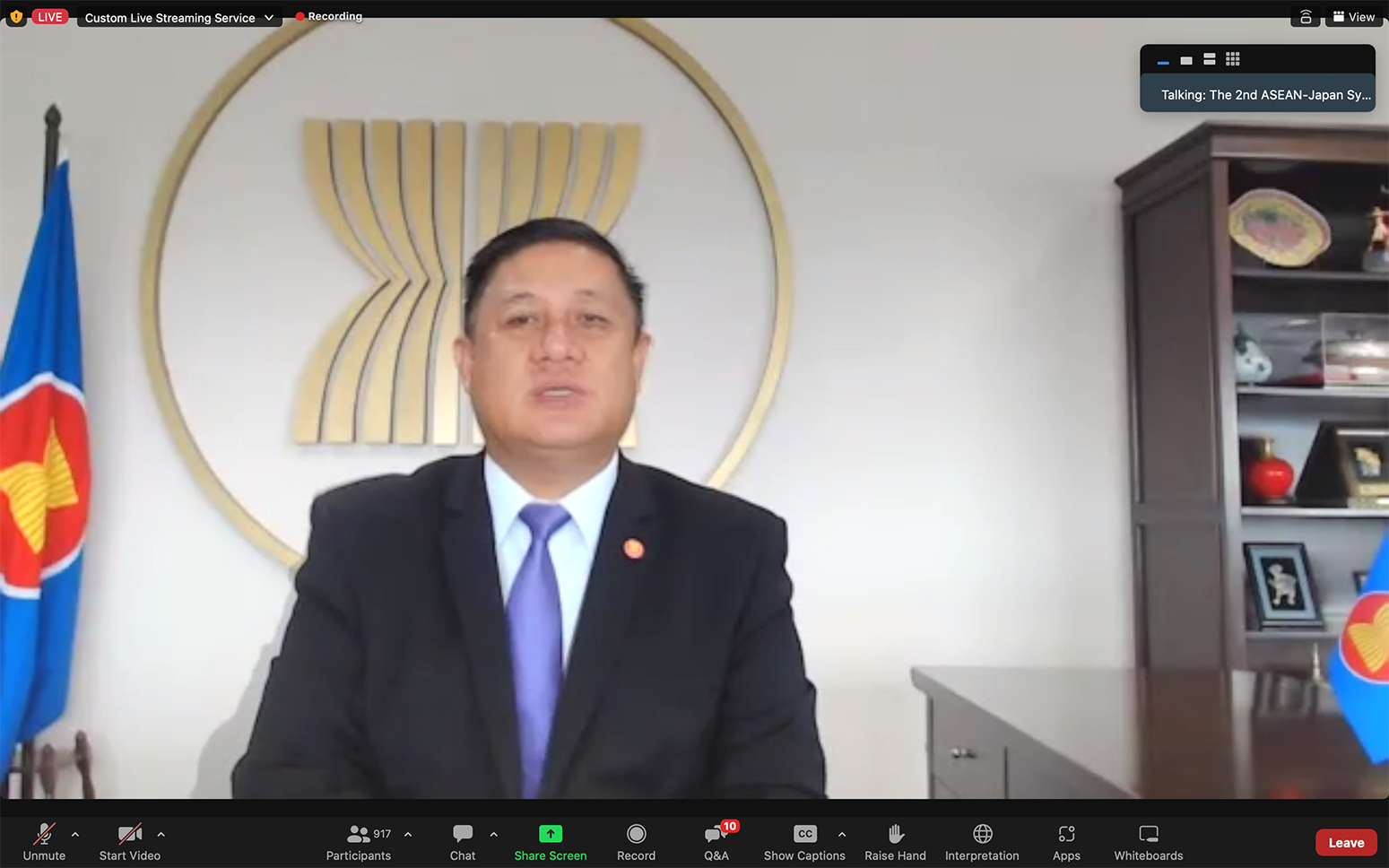
Mr. HATA Yasuyuki, Director General of the Environmental Management Bureau, Japan Ministry of Environment, acknowledged the severity of the marine plastic waste issue and reaffirmed Japan’s dedication to resolving it, and recognized the enthusiasm of young students in ASEAN and Japan in their initiatives to address the issue.
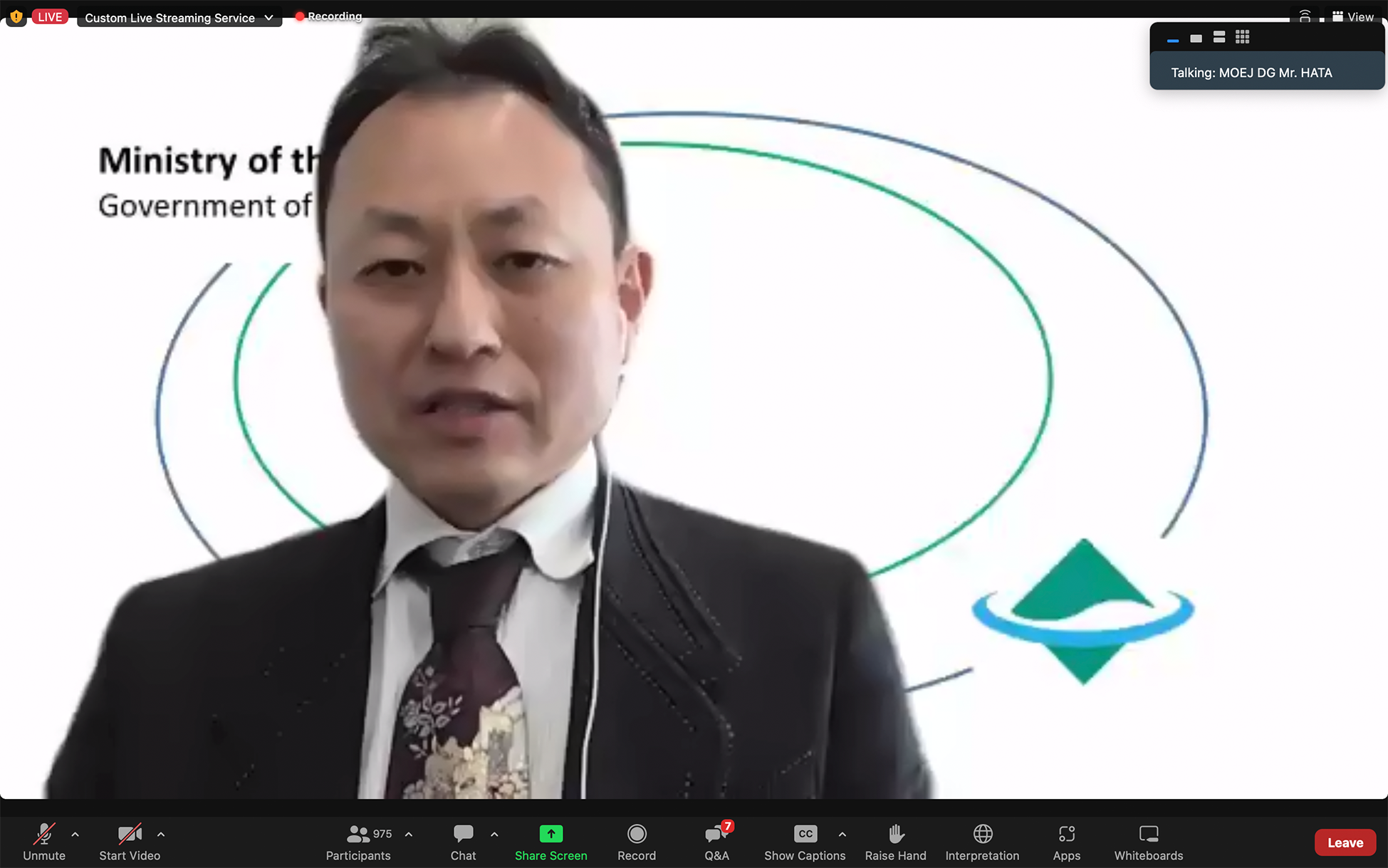
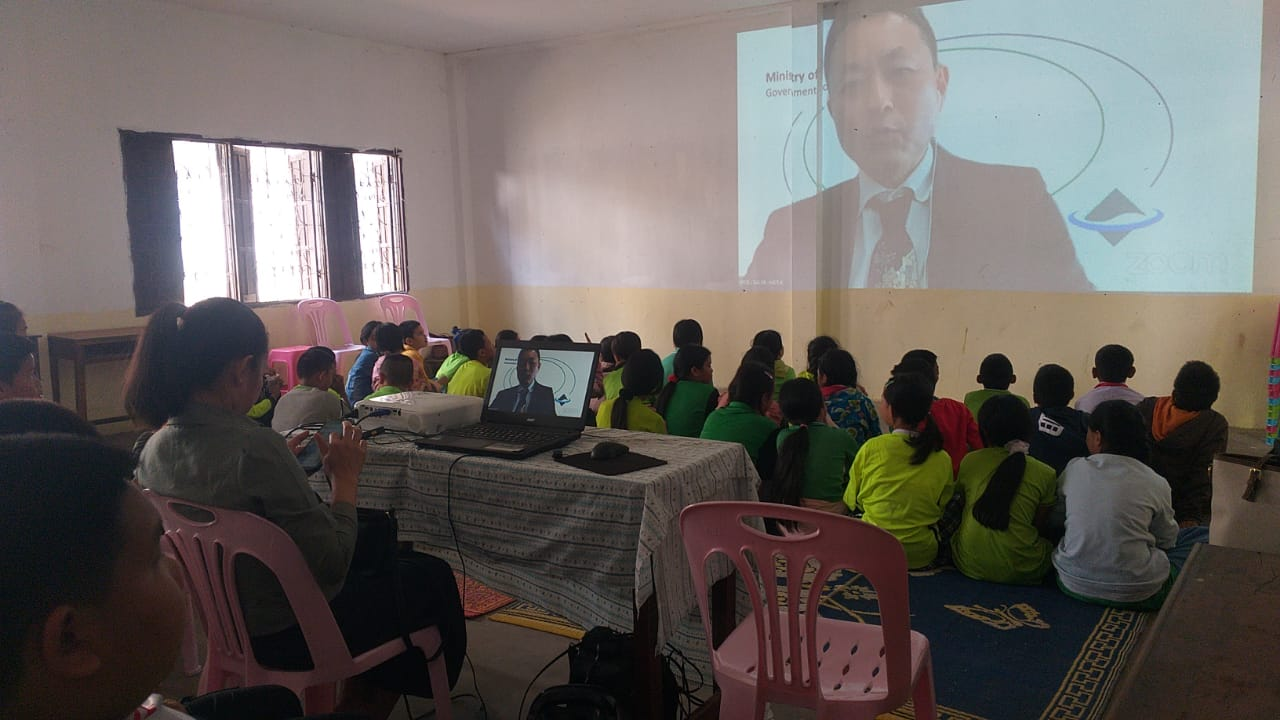
One of the highlights of the Symposium was a ceremony named “Spreading the Light to Nurture Good Habits for Cleaner Oceans,” in which AJC Fellows and eight project partners (including ASEAN Environment Division, ASEAN Hiroshima Association, ERIA-RKCMPD, Brunei Ministry of Education STEP Centre, Japan Ministry of Environment, Lao PDR Ministry of Natural Resources and Environment, Green Educators Workgroup, and UN-Habitat Philippines) lighted candles held in candle holders made with tiny plastic pieces collected from Tokyo Bay. Conducting the ceremony, AJC Fellow Yasmin Nabillah Mohd Fauzee (Malaysia) reiterated young people’s demand for cleaner oceans and called for proactive actions to address the plastic pollution issue. The theme of the symposium reiterates the Centre’s ongoing pledge campaign, “Nurture Good Habits for Cleaner Oceans” with over 400 supporters in the region.
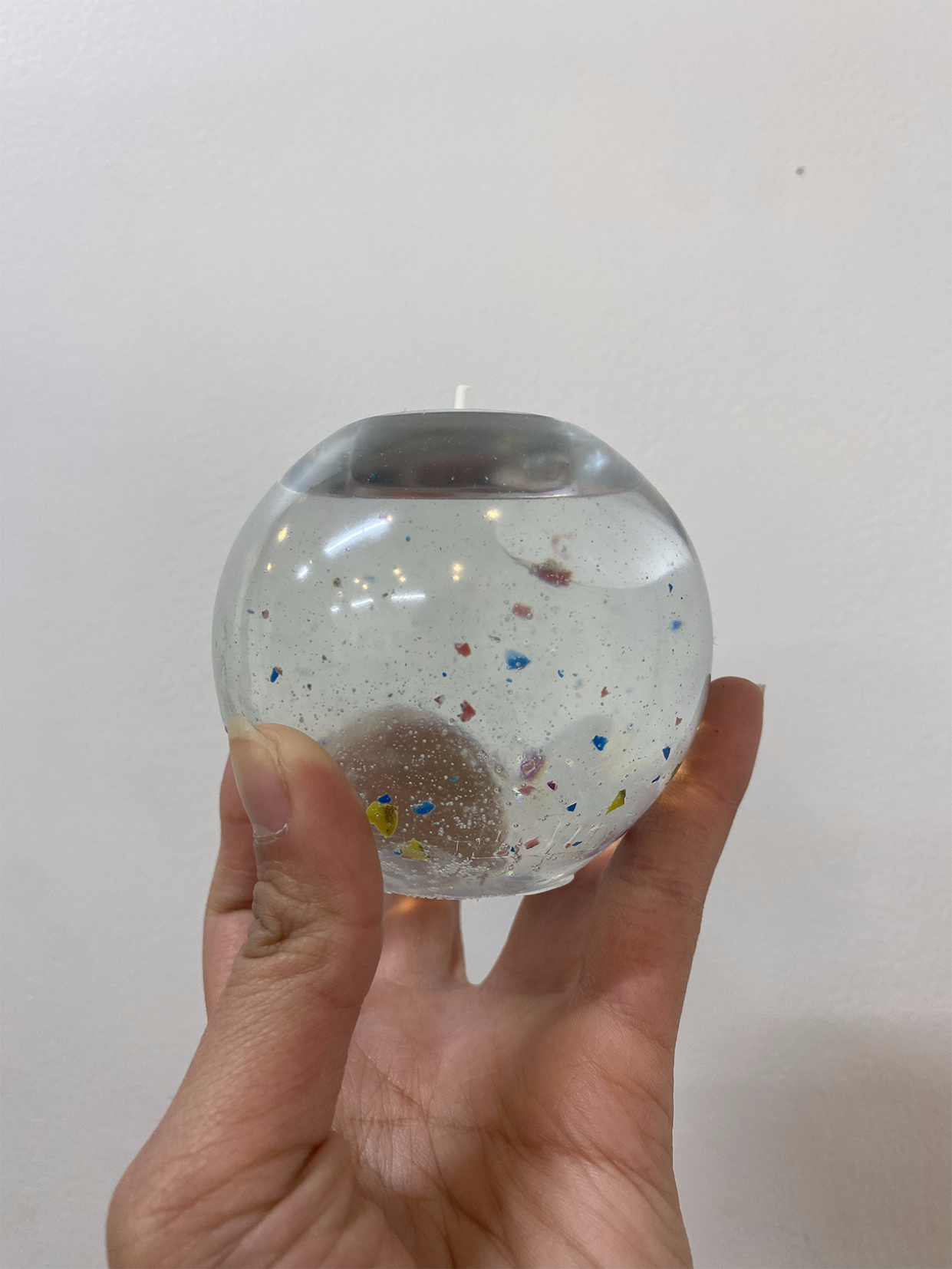
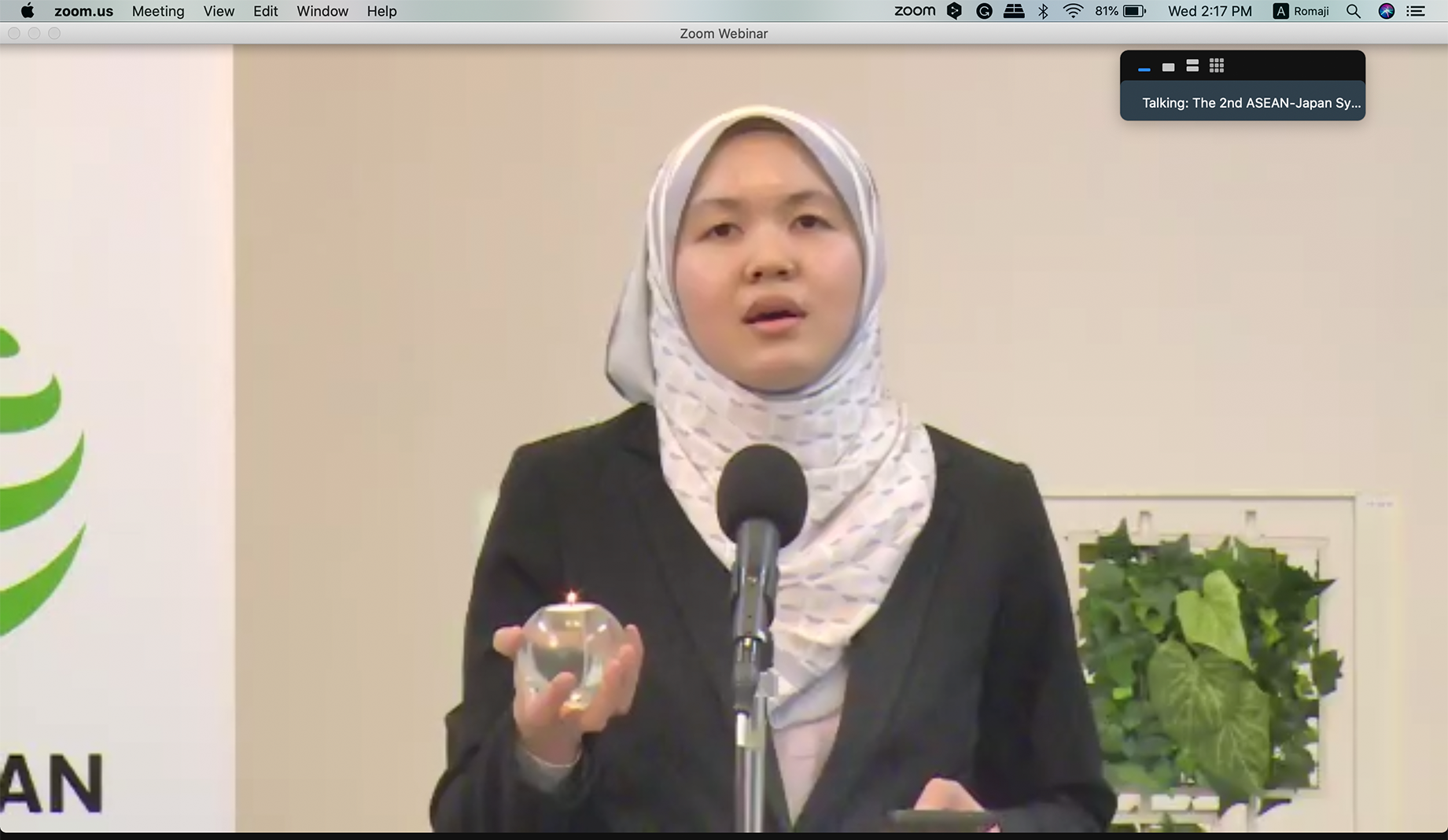
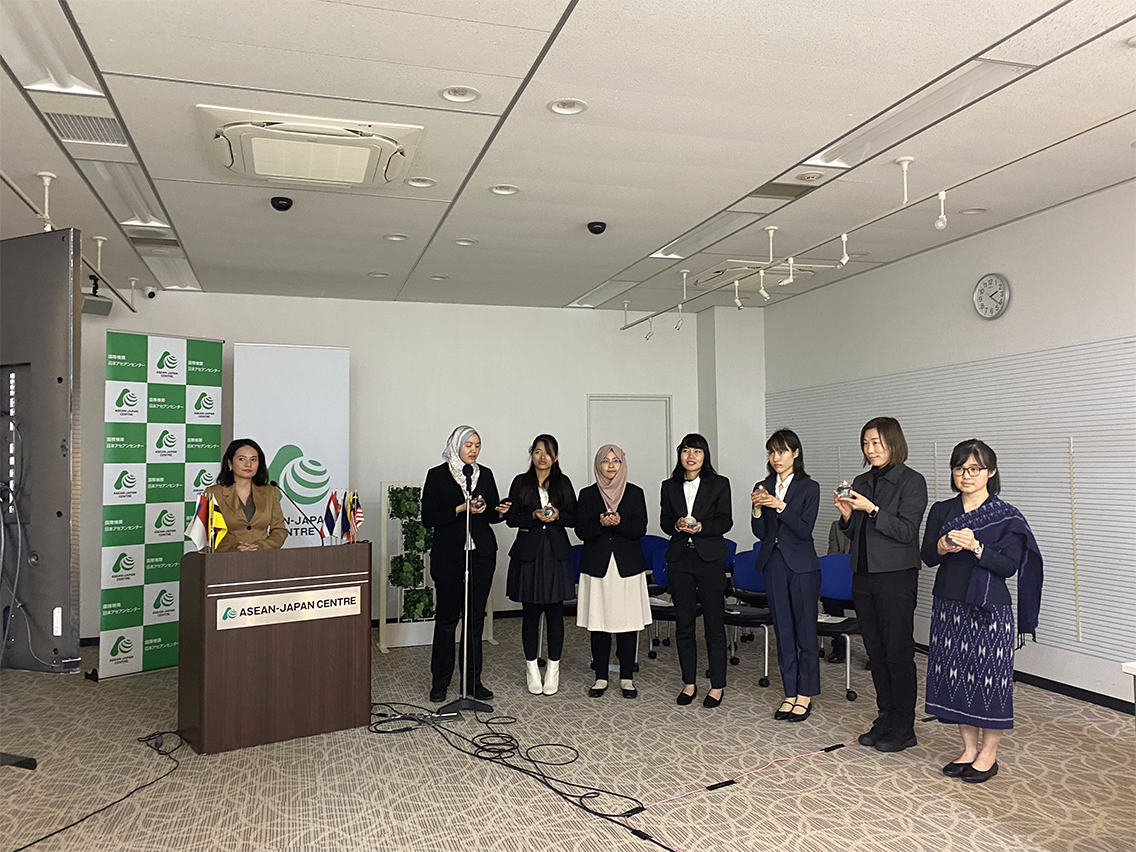
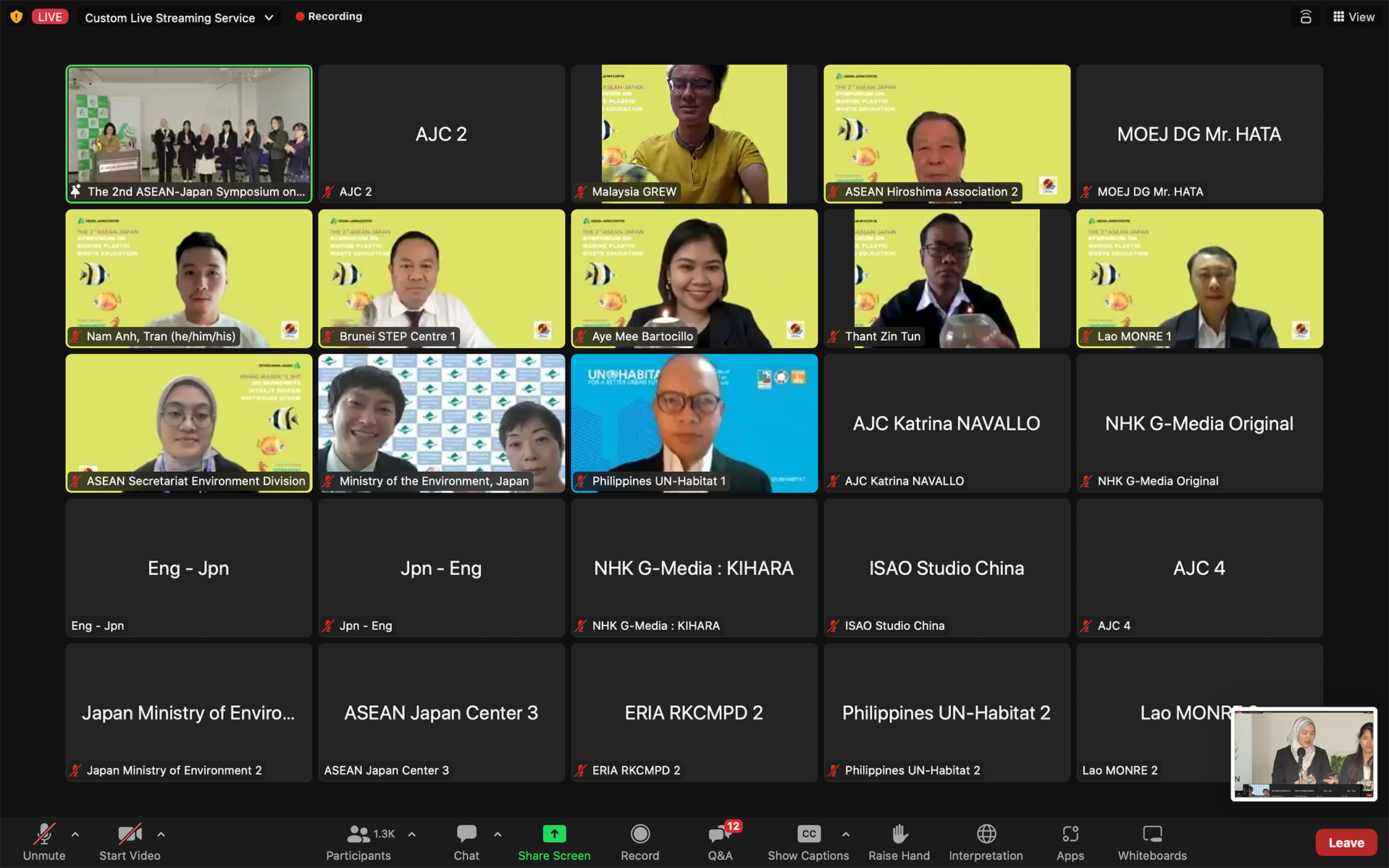
The 11 video presentations from schools in eight ASEAN countries and Japan featured student-led initiatives after receiving the Ecoschool lecture. These include plastic waste sorting, beach and river clean-up, reusing plastic items, use of eco-bags in Brunei schools, water bottles and straws, creative games from Malaysian schools, online campaigns in Davao, Philippines, and incorporating materials from the Ecoschool lecture into the lesson plans of teachers in Lao schools. The 11 schools from different ASEAN countries who were featured in the Symposium are the following: Sekolah Rendah Lumapas (Brunei Darussalam), Royal Government of Cambodia Ministry of Environment (Cambodia), Nakamura School (Indonesia), Hiroshima Jogakuin Daigaku (Japan), Pathana School (Lao PDR), SMK Convent Butterworth (Malaysia), Maktab Rendah Sains (Malaysia), Basic Education High School No. 2 Pathein (Myanmar), Ateneo de Davao University Ecoteneo (Philippines), Bagumbayan Central School (Philippines), and Wachirawit School (Thailand).
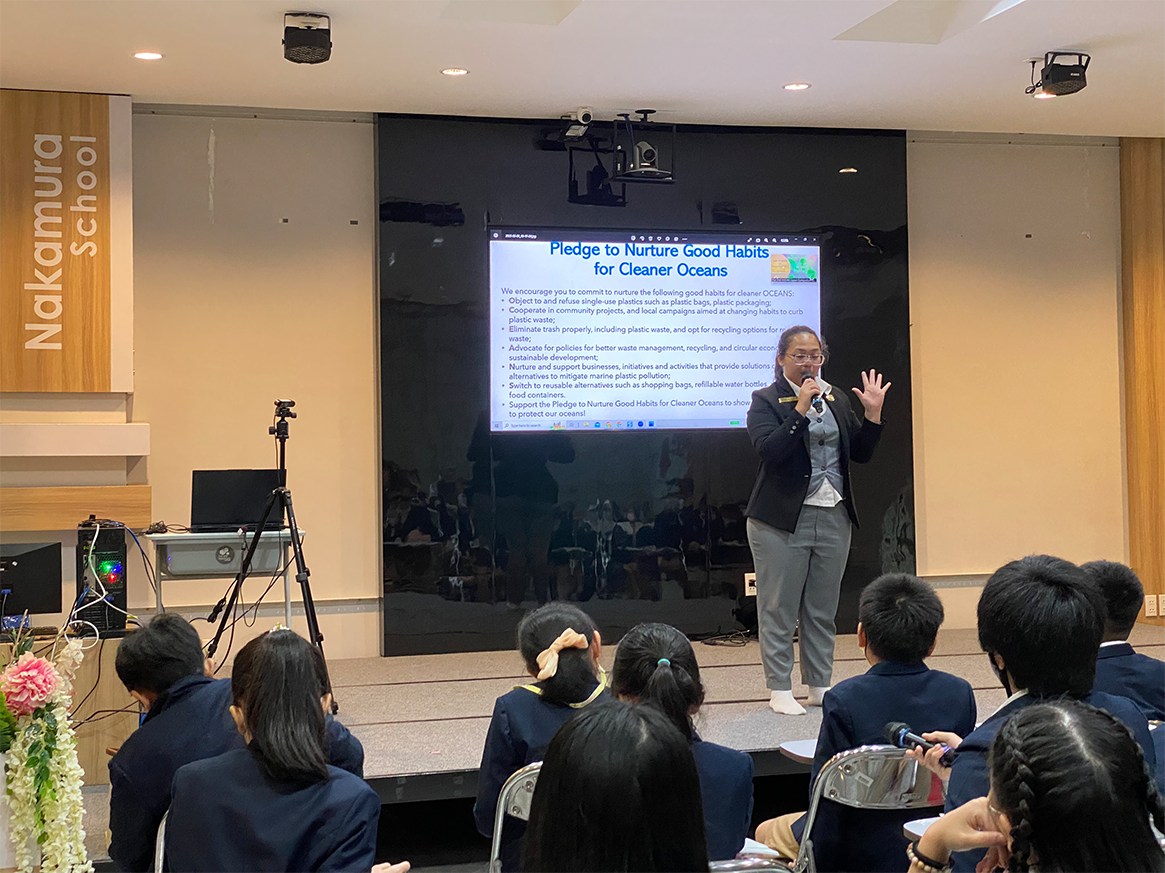
The Symposium concluded with messages of support from Mr. Michikazu KOJIMA, Special Advisor to the President on Environment, ERIA Regional Knowledge Center for Marine Plastic Debris, and Mr. Christopher Rollo, Country Programme Manager, UN-Habitat Philippines. Both speakers were greatly inspired by the student-led initiatives to tackle marine plastic waste and promised their full support to younger generations to address the issue. The Centre’s Secretary General HIRABAYASHI Kunihiko wrapped up the Symposium by highlighting the need for cooperation and co-creation between ASEAN countries and Japan in realizing a healthy ocean and a healthy planet.
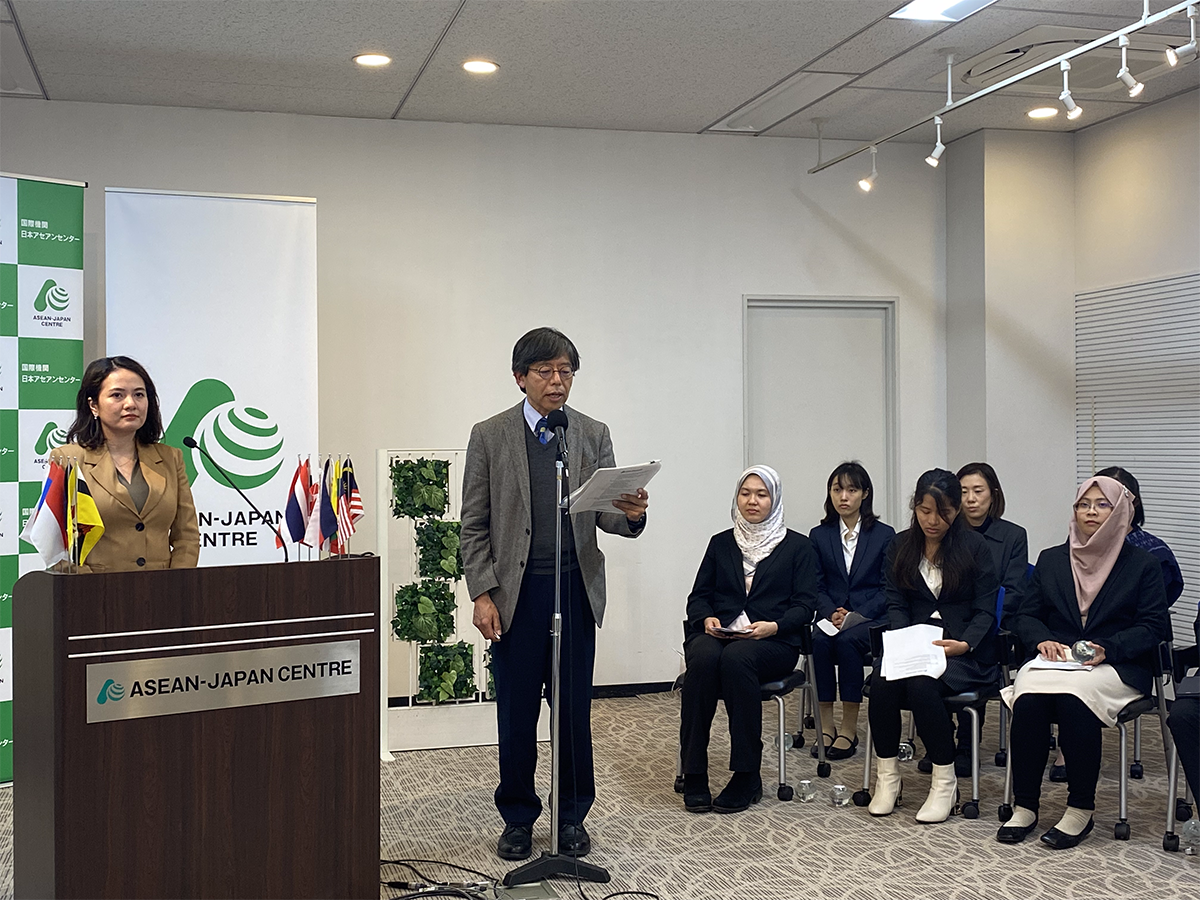
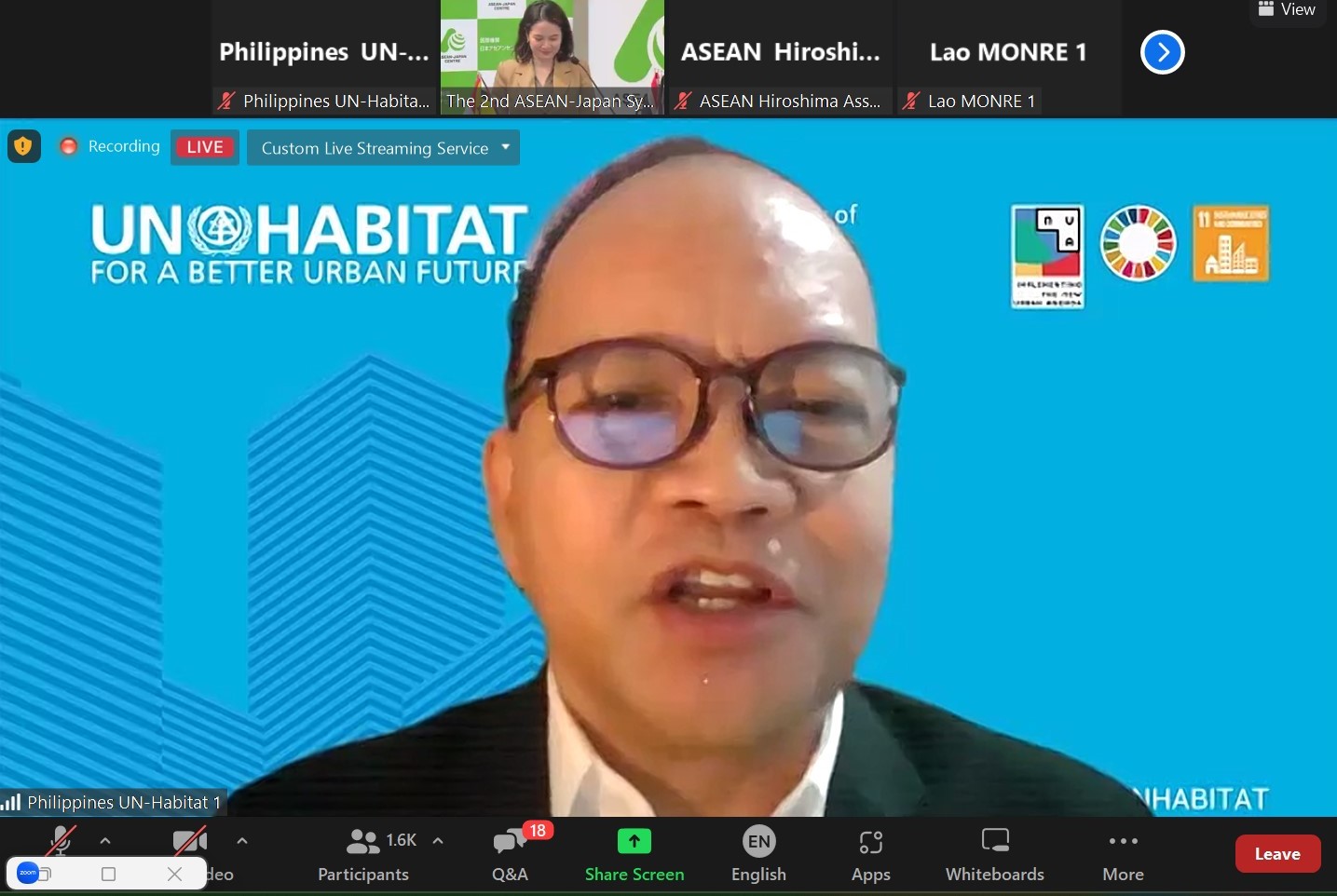
In the post-event survey with 715 respondents, 81% of the participants responded that the symposium greatly increased their interest on the issue of marine plastic waste in ASEAN and Japan, while 78% responded increased commitment to reduce plastic waste in their daily life after joining the symposium, and 88% expressed readiness to nurture good habits to reduce plastic usage.
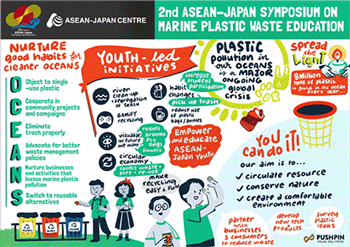
To view the Youtube livestream record of the Symposium, please see 2nd ASEAN-Japan Symposium for Marine Plastic Waste Education – YouTube
For further details on the ASEAN-Japan Ecoschool program, please check the ASEAN-Japan website (ASEAN-Japan Cooperation on Marine Plastic Waste | ASEAN-JAPAN CENTRE) and Facebook page ((1) ASEAN-Japan Eco-School | Facebook).


